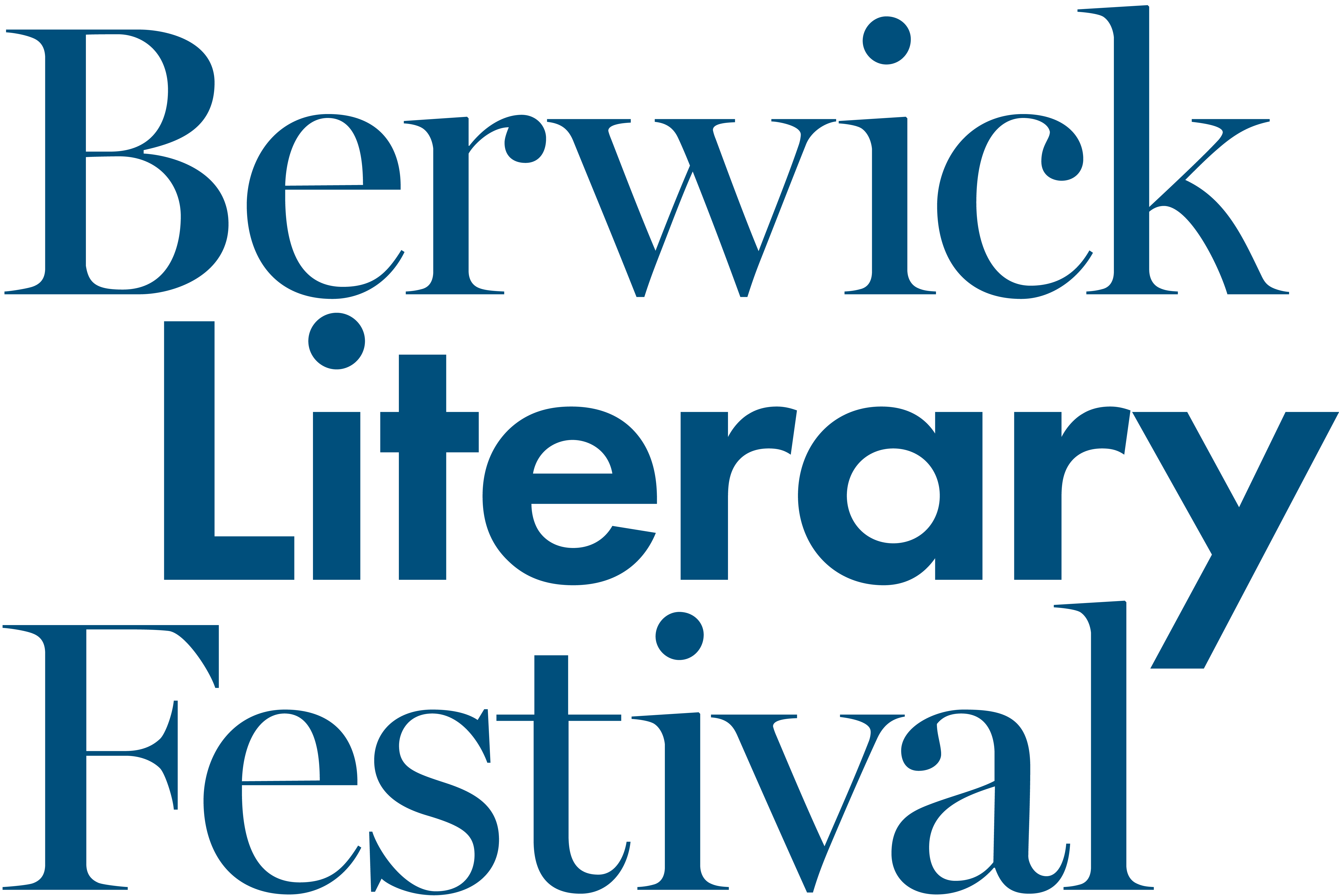The Festival at a glance
Thursday 15th October
We kicked off the morning with two writing workshops.
At 4pm there was an interview with diva of her craft, biographer Ann Thwaite. The lives she’s captured in print include Frances Hodgson-Burnett (The Secret Garden) and A.A. Milne.
Rosie Serdiville and John Sadler joined us at 6pm to explore the archaeological and manuscript evidence they’ve pieced together to examine the story of Oliver Cromwell’s trail of tears – the march of 5000 Scottish prisoners from Dunbar to Durham.
Harry Baker – World Poetry Slam Champion – concluded the day’s events at 8pm. Harry’s a cool guy and his quick-fire, fast-paced rhymes will keep your ears pricked and your mind in top gear.
Friday 16th October
Wigtown bookseller Shaun Bythell talked at 10am about his books that are ‘guaranteed to offend anyone who has ever crossed the threshold of a bookshop’.
Tamsin Calidas joined us at noon. She upped sticks from London in favour of life on a remote Hebridean island. Her book I am an Island tells the tale of a harsh but ultimately cathartic natural world. It’s not without controversy: some islanders took exception to her account.
The Duke & Duchess of Sussex may have caused a royal stir when they recently upped sticks but at 2pm Alex Larmen cast new light on the devastating impact of the 1936 Abdication Crisis in his revelatory book: The Crown in Crisis.
At 4pm, Bloodaxe Books’ editor Neil Astley was joined by poets David Constantine and Imtiaz Dharkar for his session which included readings from the acclaimed new poetry anthology Staying Human – New Poems for Staying Alive.
At 6pm, Simon Boyd concluded the day's events with a look at the odyssey of local woman Lady Sybil Middleton (nee Grey). Born to a life of privilege, Sybil’s desire for travel and adventure took her from Northumberland to the Russian Revolution.
Saturday 17th October
We began proceedings at 10am with former Minister of State for Trade, Stephen Green, talking about his book: The Human Odyssey – East, West and the search for Universal Values. A much lauded delve into the human condition, the world and the future.
Next up was award-winning literary writer Jessie Greengrass at noon. She discussed her work and what it feels to be billed as a fresh and dynamic voice in fiction. Novelist and stand-up comedian AL Kennedy said of Jessie: ‘a genuinely new and assured voice in prose. Her work is precise, properly moving, quirky and heartfelt.’
The afternoon continued at 2pm with social historian and gardener Ursula Buchan asking: ‘Did we really dig for victory?’. She’ll be drawing on her book: A Green and Pleasant Land: How England’s Gardeners Fought the Second World War.
Jen Gale describes herself as an ordinary knackered mother of two. Even so, she’s found time to write The Sustainable (ish) Living Guide which outlines small changes that can make big differences in our world. She also practises what she preaches – her family spent a year buying nothing new. Jen was on at 4pm.
Saturday’s grand finale at 6pm was seasoned political broadcaster and columnist Steve Richards. He shared reflections on leadership from Wilson to Johnson. He argues that the most successful election winning Prime Ministers have one distinct quality: they are political teachers. And he explained why Boris Johnson is unique as a Prime Minister.
Sunday 18th October
Pauline Beaumont’s book: Bread Therapy: the mindful art of baking bread chimes with the lockdown sourdough-making explosion. She discussed all things bread – and the health benefits of practising life skills in everyday activities. On at 10am – toast and jam de rigeur!
Former Para and SAS soldier Harry McCallion joined us at noon. He explored the Undercover War in Northern Ireland: Britain’s Special Forces and their battle against the IRA.
At 2pm, Professor Brian Ward discussed the African American visitors to the North East who made the region a hub of 19th-century anti-slavery activism, and paved the way for Martin Luther King’s historic 1967 visit. One of his subjects, Frederick Douglass, was a former black slave whose freedom was bought by two Quaker women from Newcastle. Douglass was recently referenced in a speech by Joe Biden US presidential candidate.
Our final session of this extraordinary four-day programme was at 4pm. Scottish broadcaster and journalist Stuart Cosgrove (and former NME editor) shone a light on how black music lit up the sixties against a backdrop of social and political turmoil. And revealed how Cassius Clay, a remarkable witness to the first days of soul music, made his extraordinary transformation into Muhammad Ali.
Registration free for all sessions on the Event pages
Online and free. Thursday 15th-Sunday 18th October.

